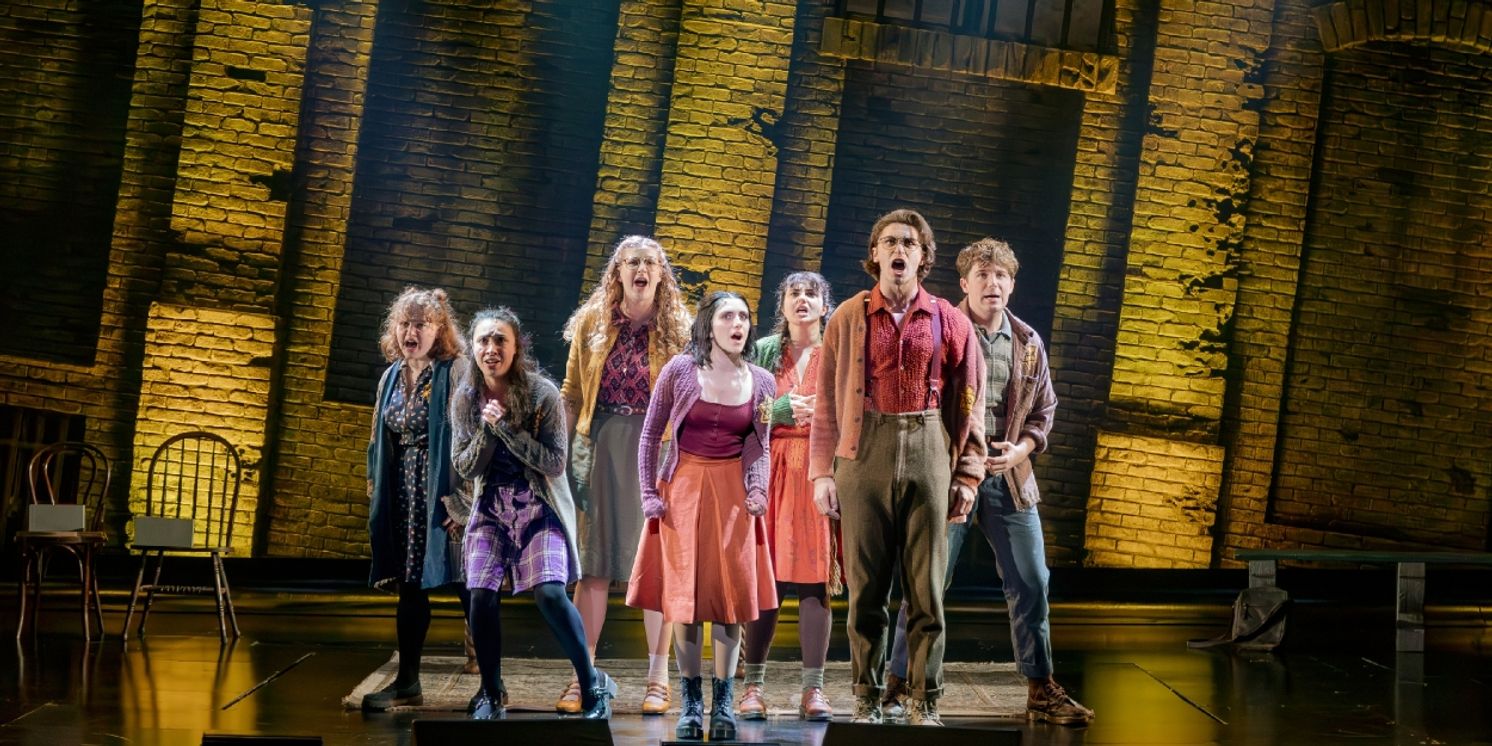Review: RUTKA at Cincinnati Playhouse In The Park
Rutka makes its world premiere at Playhouse in the Park, sharing the legacy of a tragic true story.

“How do you heal in a world full of heartache?” Thus asks Rutka Laskier, a 14 year old Jewish girl living through the German invasion of Poland in 1943. Forced to live in the ghetto under the watchful eye of the Nazi party, Rutka has had to suffer through the past four years as her rights have been stripped away from her people, from their homes, to their schools, to their basic safety and needs, to their right to exist at all. Regardless, she is optimistic for a better future where she can return to a life of freedom as she had known as a child. Her true story is one of many examples of the tragedy resulting from the Holocaust, but only one of few that has survived through history.
Rutka is a new musical making its world premiere at Playhouse in the Park in Cincinnati, Ohio, adapting Rutka’s diary entries from her final months before being killed in the Auschwitz concentration camp. Featuring an indie-rock musical score by Jocelyn Mackenzie and Jeremy Lloyd-Styles and a book by Neena Beber, Rutka finds the balance of telling a nuanced account of the young girl’s adolescent experiences while growing up in a time of terror and isolation. With its stunning design elements, a dedicated cast, and themes that continue to relate to the modern perspective, Rutka has a bright future ahead as it moves further into development.
Immediately after walking into the theatre, the set alone creates an impact. Brilliantly designed by the Tony Award-winning Todd Rosenthal, the crooked backdrop demonstrates the dark instability of the show’s content. Every scene has an immaculate design and smoothly transitions into the next. It is also supported by the lighting design from the acclaimed Josh Epstein, and together they create optical illusions in many scenes that makes the stage appear slanted, as if it took place on a hill, emphasizing the disorienting lives that the characters are surviving through.
Lana Schwartz leads the cast as the titular Rutka, having a long history with the show after performing the role during the Lincoln Center Concert Presentation and in other developmental stages. She tackles the complex humanity of Rutka, who is doing her best to live and hope for the good things in life while navigating the chaos around her. She explores her youthful endeavors with her friends, experiences the new thoughts and sensations that come with being a teenage girl, and tries to make sense of her crush on her classmate Janek (Ayden Weinstein). At the same time, she rebels against the rules instilled by the Nazi party by collaborating with her school friends to secretly continue their education against orders and doing their part in supporting the Jewish resistance in the small ways they can.
Other standouts in the cast include Dillon Klena as Lolek and Delaney Brown as Stasia. Klena and Brown were both last seen in Cincinnati in the National Broadway tour of Jagged Little Pill, and they reunite in this show as allies to Rutka, albeit in very different ways. Lolek is an older, intellectual classmate whose maturity and passion help the group of teens persevere through the restrictions. Klena has the presence that a leader like Lolek requires, while simultaneously dealing with his own trauma of taking care of himself after his family had been taken from him. Meanwhile, Stasia is 20 and befriends Rutka after Stasia’s family’s home was confiscated by the Nazis to create cramped quarters where they could pile in Jewish families. She acts as a big sister-like figure, giving advice and support when able. Brown has a couple touching solos in the musical, including “The Future” where she expresses the unfairness that Rutka has been dealt with and wishes for her a better tomorrow. She offers to hide Rutka’s diary if things become dire, as book burnings were instated and other writings by Jews were forbidden as well. As a result, Rutka’s diary was saved, and her legacy was reignited upon the sharing and publishing of her work decades later.
It is important to note that this review is based on the performance of Wednesday, November 6th, the day after the 2024 presidential election in which Donald Trump, a man with a long history of displaying dictator-like qualities in his time as a political figure, was elected into office for a second time. Over the years he has used his power to control others for his own benefit, roll back many freedoms for marginalized people, and threaten opposers, all while evading consequences for abhorrent crimes and now as a convicted felon. Many people in the United States, and even others around the world as the policies of this country have a strong influence across the world, are fearful of the years to come.
The emotions reflected in Rutka are still continuing to this day, and its messages feel more relevant than ever. The growing anger throughout the show feels real, only heightened by the indie-rock score. The graphic descriptions are brutally honest, like when Rutka witnesses violence and killings at a mandatory selection for which Jews were to be deported to the concentration camps. The despair as things continue to worsen with no end in sight is devastating. And as the final song communicates all the powerful thoughts and questions that run through the uncertainty of life, tears were running throughout the audience. Yet even in times of horror and repression, we continue to hope for improvement. We also remember and learn from the past, as empathy is the main tool for a better world.
Rutka is nearing the end of its production at Playhouse in the Park, closing Sunday, November 10th after a successful run. For tickets and more information, visit cincyplay.com or click on the link below.
Photo by Mikki Schaffner
Reader Reviews

Videos

